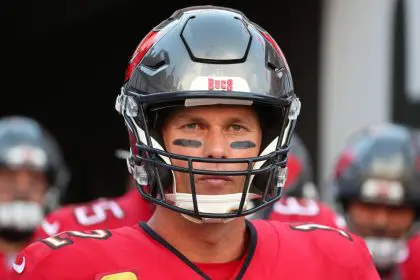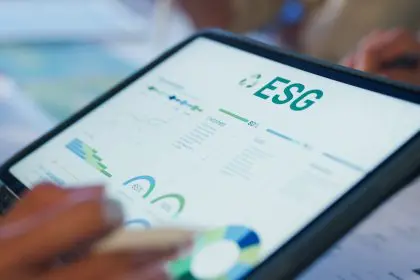
Maci Peterson Philitas is a platform founder, CEO, and former private wealth strategist helping others build, grow, and transfer generational wealth. As co-founder and CEO of On Second Thought (OST), she led the creation of a patented messaging infrastructure used in over 190 countries. She also served as Vice President at Bernstein Private Wealth Management, where she helped design the firm’s Emerging Wealth and Multicultural strategies.
Philitas has founded multiple innovative platforms addressing financial literacy and access across different demographics: I Look Like an Investor, a community for Black women investing in startups; Eagle Rock Kids, a media platform teaching financial literacy to preschoolers; and NextGen Acquisition Partners, an AI platform connecting Baby Boomer sellers with Millennial buyers.
Her groundbreaking work has earned recognition from BBC, Inc., Forbes, and NPR. She currently resides in Montclair, NJ with her husband and two sons, while continuing her mission to democratize financial knowledge and create pathways to generational wealth.
In this exclusive interview, Philitas discusses her entrepreneurial journey, the inspiration behind her educational platforms, and her vision for empowering communities traditionally underserved by mainstream financial institutions.
What inspired the concept of Eagle Rock Kids, a financial literacy platform for preschoolers?
The first is, I have a four-year-old son, and a couple of years ago, probably like a year and a half ago, we started teaching him the fundamentals of reading, phonics. We enrolled him in Kumon, and as we were going through the exercises, I thought to myself, if we’re teaching them the foundations of language and reading at three and four years old, why aren’t we teaching them the foundation and the fundamentals of personal finance, especially since their minds are so malleable.
It’s the perfect time to teach them healthy money behaviors as well as relationships, and beyond that. What very few people know is that most of our money behaviors are learned and set in stone by the time we’re seven.
Teaching that at the preschool age is incredibly important. In addition to that, I was a Vice President at Alliance Bernstein at the time, which has a private wealth management business. And I was building tools to help families facilitate multigenerational conversations about wealth—those that included, the youngest members of our families. And so with my experience at home with my son and my work focused on helping families talk about wealth, I thought we need a product and a system that teaches these children how to think about money even from a young age.
How can parents and children engage with Eagle Rock Kids?
Eagle Rock kids we are story driven. We teach these principles through stories and then rituals to help reinforce the lesson. You can find them at eaglerockkids.com. You can sign up for a digital or physical subscription, and we’re happy to share it with you as soon as you sign up.
What inspired you to launch “I Look Like an Investor” and what barriers do Black women face when investing?
My main inspiration behind I Look Like an Investor was twofold. One was selfishly as a black female founder. At the time I was the CEO and co-founder of my first tech company called On Second Thought, where we invented the ability to take back text messages before they get to the other person, and we have three patents on that, and I as being one of the first handful of black women to have raised over a million dollars in outside capital, I found that it was extremely hard.
Part of the reason why it was hard was because pattern matching exists, and it’s something that, quite frankly, we can’t help. We want to support people who look like us, who feel like us, who have the same experiences as us, and who come from the same backgrounds. But at the end of the day, I wasn’t going to have the same pattern as, Chad from Middle America who was a venture capitalist at one of the major firms.
And so I figured, if we can’t change that, then we need to have more investors whose pattern is more like mine. If we’re going to pattern match, let’s have more Black female investors. Part of the inspiration—was to make it easier for Black women to raise money in general.
The other reason was because my husband and I were beginning to think about angel investing, and so were many of our friends. And while I’d had the experience as an operator, I hadn’t necessarily had the experience of an investor. I started reaching out to Black female investors who I knew, and I thought to myself, I have a great network and I can easily have these conversations.
But there are so many women who can’t. There’s so many women who are accredited investors or interested in dabbling in this, but they don’t know Monique Woodard. They don’t know Erica Duignan Minnihan, they don’t know Sydney Thomas.
And so I launched I Look Like an Investor to provide other women with the same access that I had, and to provide other women with the opportunity to learn their playbooks so that they could then become investors as well.
As a builder of platforms, what makes a great founder beyond the idea?
There are a couple of things. One, it’s not even just an idea—it’s going out there to solve a problem. And solving a problem that, for me, I think what’s important is it can change the trajectory of lives of others.
For even my first business, which was a digital magazine that I started while I was in college, it was all about helping Black women become the best version of themselves and giving them the tools to be global leaders in our society. Even with On Second Thought, it was about fixing text messages, which a wrong text can change the trajectory of your life.
And then for Eagle Rock Kids, it’s about teaching these principles early. So that our kids, of all backgrounds, have a healthy and wealthy mindset that can change the trajectory of their lives. That’s the first thing—find a problem that you want to solve.
The next thing is, lots of people have the idea, but they don’t act on it. They don’t do anything with it. They’re like, “Oh, I thought about that, and I never—”
The next step is just acting on the idea. And then I think the third thing is to be almost obsessed with your customer. My first step, whenever I approach any business or project, is to talk to the customer, talk to the market, find out what their needs are, and then I build to their needs.
What are you most looking forward to at the upcoming Roadmap to Billions event?
I love events like Roadmap to Billions for a couple of reasons. One is just the convening of Black women, of brilliant Black women. I spent part of my college career at Spelman, and I just love being amongst my sisters. That feeling of reunion, that feeling of just, taking in their brilliance, learning from their brilliance, and just walking away feeling like my soul has been filled and inspired. And in times like these, those spaces and environments are more important than ever.
The other thing, and it’s kind of tangential to that, is hearing from Black women who are just crushing it.
Like these systems were not created for us to succeed, and for us to have the opportunity to engage in pure learning and hearing from others about their playbooks, or whether it’s to inspire each other or commiserate with each other. It’s just always a great and healthy and fulfilling environment. And so, aside from the content, I’m excited about the people.
How can people follow your journey and learn more about your platforms?
You can follow me on Instagram. My handle is at @maciphilitas or @eaglerockkids as well. I’m also on LinkedIn, you can find me there and subscribe to Eagle Rock Kids as well as our newsletter to stay up to date about all of our new products and stories and journeys and rituals. We also have a LinkedIn Group, which you can find just by searching for “I Look Like an Investor.”
















